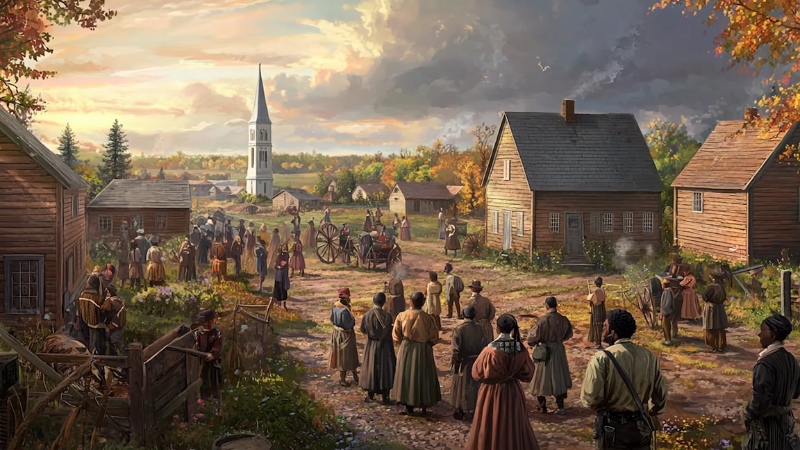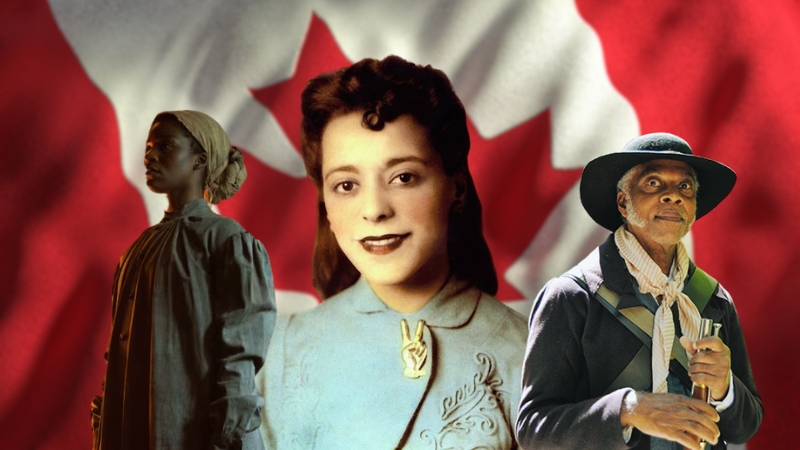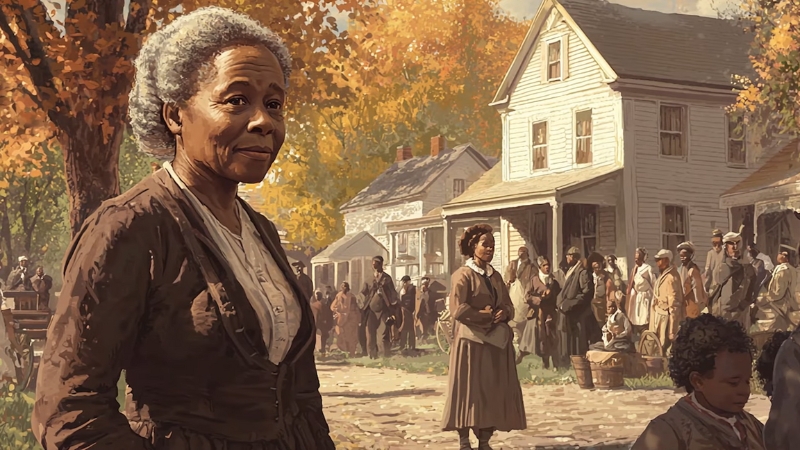Growing up in Canada, I learned plenty about Black history—but almost always through stories set elsewhere, usually south of the border.
It left me wondering, Did Canada have its own early Black communities, and if so, what happened to them? The answer surprised me.
Yes, Canada did have vibrant Black communities long before the Underground Railroad, communities born from both hardship and hope. Yet, these incredible stories have often been overlooked or hidden away.
Today, I’m excited to share with you the inspiring and sometimes heartbreaking origins of Canada’s first Black communities, their lasting legacy, and why their stories deserve a much brighter spotlight.
If you’ve ever asked yourself about Canada’s own Black heritage—where it began and why it matters—you’re in the right place. Let’s uncover a part of our history that has shaped Canada profoundly, even though it’s rarely taught in classrooms.
Early Beginnings: Where Did Canada’s Black Communities Come From?
Black communities in Canada have roots that stretch back several centuries. From the 1600s onward, Black people came to what’s now known as Canada through various routes—some willingly, others tragically forced.
Enslaved Africans in New France
Did you know?:
Black people have lived in Canada since the 17th century. Some of the earliest arrivals were enslaved persons brought from the USA and the Caribbean.
Posted by: Team JA
Ref.: https://t.co/tW7mYJhvXFhttps://t.co/TpHQhfeoZH
— Hon. Jean Augustine, P.C., C.M., O.Ont., C.B.E. (@JeanAugustine07) February 26, 2024
The earliest Black people in Canada came primarily through French colonial settlements.
From as early as 1628, enslaved Africans were brought to settlements like Quebec City and Montreal. Life was brutal and harsh, yet records of these early enslaved individuals are scarce.
When I discovered this, it surprised me deeply; Canada often positions itself as a country free from the legacy of slavery—but slavery did exist here, and its effects lingered long afterward.
Loyalists and the Promise of Freedom
Fast forward to the American Revolution (1775–1783), when thousands of enslaved African-Americans sought refuge by siding with the British, who promised them freedom. These refugees, known as Black Loyalists, fled to Nova Scotia, New Brunswick, and parts of Quebec.
Imagine their struggle: escaping slavery, fighting for freedom, only to arrive in Canada facing discrimination and hardship.
The land given to them was often rocky, infertile, and isolated.
Despite these challenges, Black Loyalists built communities like Birchtown in Nova Scotia, creating vibrant settlements that embodied resilience and hope.
Notable Early Black Communities in Canada
Several early settlements significantly influenced Canada’s cultural fabric. Let’s explore a few of these communities that laid the foundations for future generations.
Birchtown, Nova Scotia – Home of the Black Loyalists
View this post on Instagram
Birchtown was established in 1783 and quickly became the largest Black settlement in North America at that time. But life there wasn’t easy. Overcrowded, under-resourced, and constantly battling racism, residents faced daily struggles.
Despite the harsh conditions, the residents formed churches, schools, and mutual aid societies—foundations for a strong, tight-knit community.
As I read about Birchtown, it struck me deeply how people facing such intense adversity still chose hope and unity.
Their courage set the stage for later communities, and today, Birchtown is honored by the Black Loyalist Heritage Centre—a powerful place worth visiting.
Africville: The Heartbreak and Resilience of Halifax’s Black Community
Africville, founded in the mid-1800s near Halifax, Nova Scotia, is perhaps Canada’s best-known early Black community, though its history is also heartbreaking.
Residents built a thriving community despite receiving little support from the city, lacking basic services like running water or sewage systems.
Sadly, Africville faced repeated injustices from city officials. In the 1960s, under the guise of urban renewal, Africville was destroyed, residents forcibly evicted, and their homes demolished.
Even now, thinking about the loss Africville residents endured brings deep sadness—but also pride. Former residents and descendants never gave up their fight for justice.
Today, the Africville Museum stands proudly where the community once thrived, ensuring their story continues to inspire.
The Underground Railroad and Settlements in Southwestern Ontario

In the 1800s, thousands of Black Americans escaped slavery via the Underground Railroad, many arriving in Ontario. Communities like Buxton, Dresden, and Amherstburg sprang up, becoming safe havens.
Buxton, for instance, was founded in 1849 by Reverend William King, a white minister opposed to slavery.
Here, Black settlers farmed, built schools, and established churches. To me, Buxton is an inspiring example of what people could achieve when given opportunities and freedom.
Their success challenged racist stereotypes of the time, proving Black communities could flourish despite widespread prejudice.
Legacy and Influence: How Early Black Communities Shaped Canada
Reflecting on the legacy of these early communities, it’s clear their impact runs deep. Here are some ways their influence still resonates today:
Cultural Contributions
- Music and Art: Early Black settlers brought musical traditions that influenced jazz, gospel, and blues music throughout Canada.
- Cuisine: Black communities enriched Canadian culture with unique dishes and cooking traditions, especially noticeable today in the Maritimes and Southern Ontario.
Activism and Social Justice
@seedifferentcan It is important to learn this #history, not to shame people, but to learn about ALL of Canada’s history so that we may learn from it. Africville has become a symbol of why Black organization and solidarity are necessary to fight racism.” – Donald Clairmont, former professor of Sociology at Dalhousie University Barriers to equity have been built into our political and societal structures since the founding of our nation. In order to eliminate these barriers, we first have to understand them and where they come from. Understanding how historical events have negatively impacted underrepresented communities helps us better understand one another and create a better, more inclusive future for all. We cover this and dozens of other moments in history in our Principles of DEI course. #historytok #historytime #canadiantiktok #canadianhistory ♬ Epic Music(863502) – Draganov89
Early Black communities weren’t just passive settlements—they were active centers of resistance against racism and discrimination.
Their advocacy laid the groundwork for later civil rights movements in Canada, contributing significantly to policies of multiculturalism and anti-racism today.
Educational Contributions
Schools established by early Black settlers, such as the Buxton School, were among Canada’s earliest integrated educational institutions.
Their commitment to education played a pivotal role in challenging segregation and systemic racism, shaping Canada’s public education system over generations.
Stories of Early Black Canadians You Should Know

Every community had remarkable individuals whose stories offered insight into their experiences. Here are a few inspiring examples:
- Marie-Joseph Angélique (1700s): An enslaved woman in Montreal accused of burning part of the city as an act of rebellion. Whether or not Angélique was guilty remains debated, but her story symbolizes resistance against oppression.
- Richard Pierpoint (1744–1838): A former slave from Africa, Pierpoint fought for the British in both the American Revolution and the War of 1812. Later, he petitioned successfully for land to establish a Black community in Ontario, called the Queen’s Bush settlement.
- Viola Desmond (1914–1965): While from a later era, Desmond’s fight against racial segregation in a Nova Scotia movie theater directly connects to earlier struggles faced by Africville and Birchtown residents. Her actions marked a critical point in Canada’s journey toward equality.
Why Remembering These Communities Matters
Before exploring Canadian Black history, I had underestimated how deeply embedded the contributions of Black communities were in Canada’s past and present. Recognizing the reality of racism and hardship they faced helps us appreciate the strength and contributions these communities provided to Canadian society.
By remembering the struggles and triumphs of early Black communities, we honor their resilience and ensure their stories aren’t forgotten or overlooked. It also compels us to consider the persistence of systemic racism in Canada today, prompting continued action towards justice and equality.
